Filter by
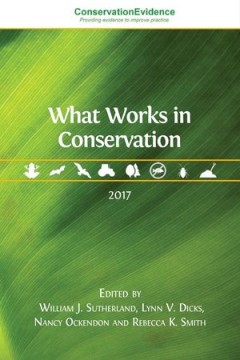
What Works in Conservation 2017
What Works in Conservation has been created to provide practitioners with answers to these and many other questions about practical conservation. This book provides an assessment of the effectiveness of 763 conservation interventions based on summarized scientific evidence. Chapters cover the practical global conservation of amphibians, bats, birds and forests, conservation of European farmland…
- Edition
- -
- ISBN/ISSN
- 9781783743100
- Collation
- -
- Series Title
- -
- Call Number
- -
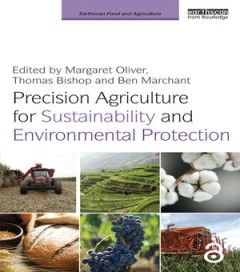
Application of Molecular Methods and Raman Microscopy: Spectroscopy in Agricu…
This book has been prepared with the aim to present the application of these two state-of-the art technologies in agricultural sciences and food technology, and to explain the protocols for analyses of different plant, animal, microbiological and food samples as well as for different biotechnology procedures. Selected methods and protocols which are used in plant stress physiology, weed science…
- Edition
- -
- ISBN/ISSN
- 9781911529521
- Collation
- -
- Series Title
- -
- Call Number
- -
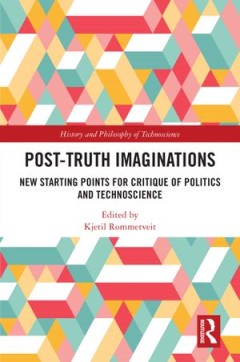
Antioxidants in Health and Disease
Antioxidant use in health promotion and disease prevention either through dietary intake or supplementation is controversial. This book reviews the latest evidence-based research in the area, principally through prospective cohort studies and randomized controlled trials. It assesses major dietary antioxidants and discusses their use in diseases such as cancer, diabetes, stroke, coronary heart …
- Edition
- -
- ISBN/ISSN
- 9781466580114
- Collation
- -
- Series Title
- -
- Call Number
- -
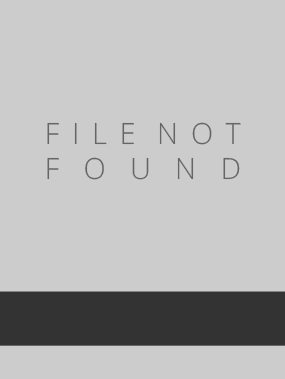
Anthropometric Individualization of Head-Related Transfer Functions Analysis …
Human sound localization helps to pay attention to spatially separated speakers using interaural level and time differences as well as angle-dependent monaural spectral cues. In a monophonic teleconference, for instance, it is much more difficult to distinguish between different speakers due to missing binaural cues. Spatial positioning of the speakers by means of binaural reproduction methods …
- Edition
- -
- ISBN/ISSN
- 9783832545437
- Collation
- -
- Series Title
- -
- Call Number
- -
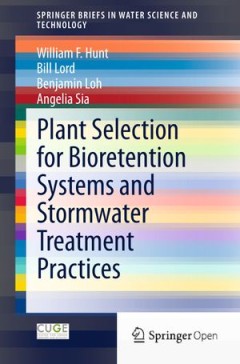
American Dolorologies: Pain, Sentimentalism, Biopolitics
Offers a critical history of the role of pain, suffering, and compassion in democratic culture. American Dolorologies presents a theoretically sophisticated intervention into contemporary equations of subjectivity with trauma. Simon Strick argues against a universalism of pain and instead foregrounds the intimate relations of bodily affect with racial and gender politics. In concise and orig…
- Edition
- -
- ISBN/ISSN
- 9781438450216
- Collation
- -
- Series Title
- -
- Call Number
- -

Agent Based Sensor and Data Fusion in Forest Fire Observer
Agent Based Sensor and Data Fusion in Forest Fire Observer
- Edition
- -
- ISBN/ISSN
- 9783902613523
- Collation
- -
- Series Title
- -
- Call Number
- -
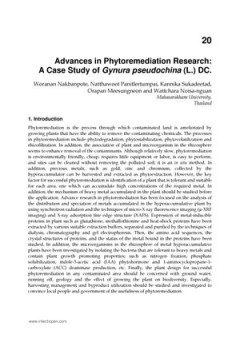
Advances in Phytoremediation Research
Advances in Phytoremediation Research: A Case Study of Gynura Pseudochina (L.) DC.
- Edition
- -
- ISBN/ISSN
- 9789533071411
- Collation
- -
- Series Title
- -
- Call Number
- -
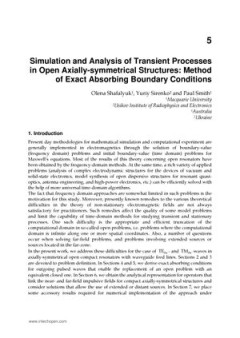
Advanced Sensor and Dynamics Models with an Application to Sensor Management
Advanced Sensor and Dynamics Models with an Application to Sensor Management
- Edition
- -
- ISBN/ISSN
- 9783902613523
- Collation
- -
- Series Title
- -
- Call Number
- -
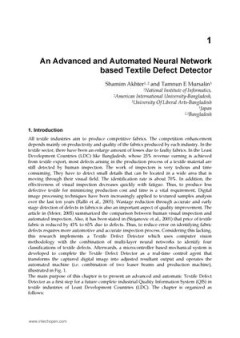
An Advanced and Automated Neural Network Based Textile Defect Detector
An Advanced and Automated Neural Network Based Textile Defect Detector
- Edition
- -
- ISBN/ISSN
- 9789533071411
- Collation
- -
- Series Title
- -
- Call Number
- -
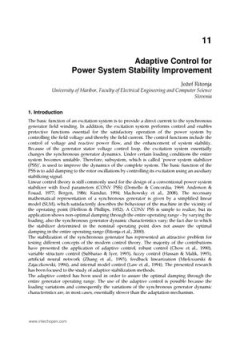
Adaptive Control for Power System Stability Improvement
Adaptive Control for Power System Stability Improvement
- Edition
- -
- ISBN/ISSN
- 9789533071411
- Collation
- -
- Series Title
- -
- Call Number
- -
 Computer Science, Information & General Works
Computer Science, Information & General Works  Philosophy & Psychology
Philosophy & Psychology  Religion
Religion  Social Sciences
Social Sciences  Language
Language  Pure Science
Pure Science  Applied Sciences
Applied Sciences  Art & Recreation
Art & Recreation  Literature
Literature  History & Geography
History & Geography